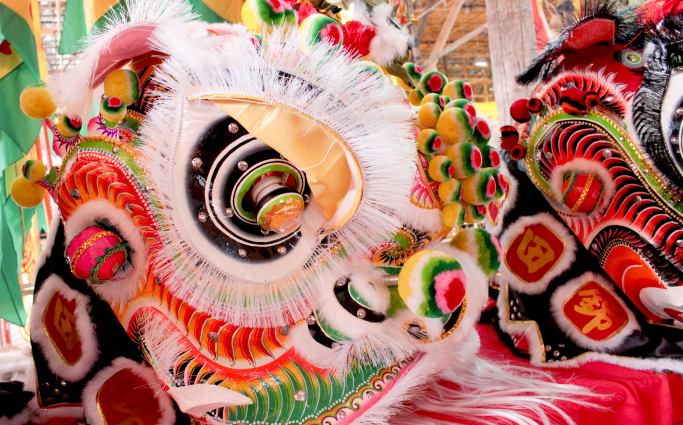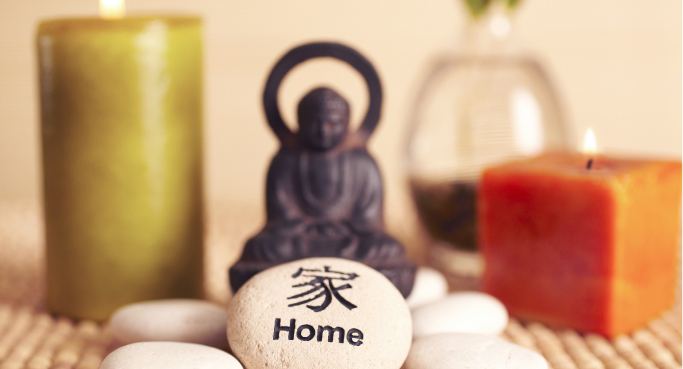Festivals and Holidays
There are 17 designated public holidays in Hong Kong each year. In addition to Christmas, Boxing Day, Good Friday and Easter, Hong Kong celebrates Buddha’s birthday and other traditional Chinese festivals.
Spring Festival (Chinese New Year)
The most important of the Chinese Festivals and is celebrated on the first day of the first moon of the traditional lunar calendar, usually late January or early February depending on the Lunar Calendar of that particular year. Celebrating the new Chinese New Year also marks the start of the plowing and sowing season. During this 3-day holiday most of the Chinese population spend time with their families — the most important gathering includes a huge family feast on the eve of the New Year. Businesses are closed for 3-days and upwards of a week depending on the industry. It is also a period of great decoration, with homes, buildings and shops all well decorated with wishes of good luck. It happens to be the noisiest of all holidays, with a massive firework show over Victoria Harbour on the 1st day of the New Year. As the majority of the Chinese population tend to travel during this period, it is wise to book holidays in advance. Schools are usually closed for a week.
National Day
China National Day is October 1st – established by the Government in 1949 to celebrate the founding of the People’s Republic of China. This kicks off 「Golden Week」 in China – October 1 to October 7, but is of much less significance in Hong Kong. Similar to the Chinese New Year holiday the majority of the mainland Chinese population tends to travel during this period, so it is wise to book holidays in advance if you have business travel over this period.
Festivals in China are elaborate and vibrant affairs. Take part in a decorated dragon boat racing during the Duan Wu Festival, watch impressive firework displays at Chinese New Year, or sample various moon cakes during the Mid-Autumn Festival – Chinese festivals are a time to be with families and friends.
Birthday of Buddha April / May. Buddhist Temples.
Cheung Chau Bun Festival
www.cheungchau.org
May.
Chinese Lunar New Year Feb. spectacular fireworks
Dragon Boat Festival
Hong Kong Dragon Boat Carnival
June.
Hungry Ghost Aug / Sept. Chinese Opera
Mid Autumn Festival
September
Lantern Festival February
For a brief overview of festival origins and the dates when they are celebrated, pick up a copy of the Hong Kong Tourist Association's free brochure, "Events and Festivals".
Hong Kong Tourist Association
Tel: 2508 1234 (HKTB Visitor Hotline)
www.hkta.org
More details visit:
www.discoverhongkong.com

| Lunar Month | Festival | Lunar Dates | Western Date 2018 | Western Date 2019 |
|---|---|---|---|---|
| First Moon | Chinese New Year | Day 1 | Feb 16 | Feb 5 |
| Birthday of Che Kung | Day 2 | Feb 17 | Feb 6 | |
| Spring Lantern Festival | Day 15 | Mar 2 | Feb 19 | |
| Second Moon | Hung Shing Festival | Day 13 | Mar 29 | Mar 19 |
| Third Moon | Ching Ming Festival | - | Apr 5 | Apr 5 |
| Birthday of Tin Hau | Day 23 | May 8 | Apr 27 | |
| Fourth Moon | Cheung Chau Bun Festival | Day 5 – 9 | May 19-23 | May 9-13 |
| Birthday of Buddha | Day 8 | May 22 | May 12 | |
| Birthday of Tam Kung | Day 8 | May 22 | May 12 | |
| Fifth Moon | Dragon Boat Festival | Day 5 | Jun 18 | Jun 7 |
| Sixth Moon | Birthday of Kwan Tai | Day 24 | Aug 5 | Jul 26 |
| Seventh Moon | Seven Sisters Festival | Day 7 | Aug 17 | Aug 7 |
| The Hungry Ghost Festival | Day 15 | Aug 25 | Aug 15 | |
| Eighth Moon | Mid-Autumn Festival | Day 15 | Sep 24 | Sep 13 |
| Monkey God Festival | Day 16 | Sep 25 | Sep 14 | |
| Birthday of Confucius | Day 27 | Oct 6 | Sep 25 | |
| Ninth Moon | Chung Yeung Festival | Day 9 | Oct 17 | Oct 7 |
| Eleventh Moon | Winter Solstice Festival | - | Oct 22 | Dec 22 |
| Lunar Month | Festival | Lunar Dates | Western Date 2018 | Western Date 2019 |
|---|---|---|---|---|
| First Moon | Chinese New Year | Day 1 | Feb 16 | Feb 5 |
| Birthday of Che Kung | Day 2 | Feb 17 | Feb 6 | |
| Spring Lantern Festival | Day 15 | Mar 2 | Feb 19 | |
| Second Moon | Hung Shing Festival | Day 13 | Mar 29 | Mar 19 |
| Third Moon | Ching Ming Festival | - | Apr 5 | Apr 5 |
| Birthday of Tin Hau | Day 23 | May 8 | Apr 27 | |
| Fourth Moon | Cheung Chau Bun Festival | Day 5 – 9 | May 19-23 | May 9-13 |
| Birthday of Buddha | Day 8 | May 22 | May 12 | |
| Birthday of Tam Kung | Day 8 | May 22 | May 12 | |
| Fifth Moon | Dragon Boat Festival | Day 5 | Jun 18 | Jun 7 |
| Sixth Moon | Birthday of Kwan Tai | Day 24 | Aug 5 | Jul 26 |
| Seventh Moon | Seven Sisters Festival | Day 7 | Aug 17 | Aug 7 |
| The Hungry Ghost Festival | Day 15 | Aug 25 | Aug 15 | |
| Eighth Moon | Mid-Autumn Festival | Day 15 | Sep 24 | Sep 13 |
| Monkey God Festival | Day 16 | Sep 25 | Sep 14 | |
| Birthday of Confucius | Day 27 | Oct 6 | Sep 25 | |
| Ninth Moon | Chung Yeung Festival | Day 9 | Oct 17 | Oct 7 |
| Eleventh Moon | Winter Solstice Festival | - | Oct 22 | Dec 22 |
Lantern Festival
Lantern Festival is held on the 15th day of the first month of the Lunar Year and celebrates the end of the Spring Festival and the first full moon of the New Year. Following a long tradition dating back to the Han Dynasty, people celebrate by carrying bright-colored lanterns through the streets and eating glutinous rice balls.
Ching Ming Festival (Tomb Sweeping Day)
Tomb-Sweeping Day (Ching Ming) in Chinese means "clean and bright". In Western terms,this holiday is a Chinese Memorial Day. It is a time of sentimental remembrance of those who have passed on, by those who continue. Entire families take the day to clean and manicure their forebears' resting place.
Dragon Boat Festival (Duan Wu day of Right mid-day)
Dragon Boat Festival (Duan Wu day of Right mid-day) is the 5th day of the 5th month of the lunar year. The story behind this unique celebration dates back more than 2000 years ago centering on a patriotic court official named Qu Yuan. Qu tried to warn the emperor of an increasingly corrupt government but failed. In a last desperate protest, he threw himself into the river and drowned. Later, Qu’s sympathizers jumped into boats beat the water with their oars and made rice dumplings wrapped in reed leaves (Zongzi) and scattered them into the River in the hope that fish would eat them instead of Qu’s body. Today, People eat Zong Zi and organize boat race to make the occasion.
Mid-Autumn Festival
Mid-Autumn Festival is held on the 15th day of the eighth lunar month usually around September each year. Celebrating the full moon people eat moon cakes! Moon cakes are usually a sweet pastry with a variety of fillings available, most commonly including egg yolk and red bean paste. It is also a time where boxed moon cakes’ are commonly given and received as gifts. This is one of the most celebrated festivals amongst westerners who go to the beaches for sunset and sundowners with children armed with lanterns.

The advantage of living in a foreign country is the opportunity it provides for learning about another culture. Most of the Chinese people with whom you will interact are quite sophisticated and worldly. Many have been educated in the West, and many more have travelled extensively. Consequently, there is very little you can do that will shock or insult them — with a few exceptions.
Despite its worldly veneer, Hong Kong is a very Chinese city and ancient traditions and ancestral rites are deeply embedded in the culture. It is fascinating to learn as much as possible about China and its history while you are here. Your insights will be invaluable in helping you to appreciate much of what goes on around you every day.
Below we discuss some very general Chinese customs that we hope you will find helpful as you adjust to your new environment.
Feng Shui
Decisions on the design of buildings and even on where to place your bed in your apartment are made based on the ancient Chinese geomancer’s art of feng shui. The principles of feng shui, which literally means wind and water, are an intrinsic part of doing business in Hong Kong.
A feng shui master is consulted to determine the site of a building, the arrangement of furniture, the opening of an office, or the selection of a wedding date. The most auspicious dates and physical settings are those in harmony with the elemental forces of the earth.
General Customs
It is polite to use both hands when you give or receive anything: a business card, a gift, or even a borrowed pen.
With Chinese names, the surname comes first: for example, Wong Sun Ting is referred to as Mr. Wong. If he were to use an English name, it would be written as follows: Sun-ting Wong.
Avoid losing your temper. It is considered loss of face to lose control of one’s emotions.
Chinese are more formal than Americans and avoid direct body contact other than shaking hands. Disagreeing with someone is considered impolite. Chinese often will give the impression of agreement even when they may internally disagree.

